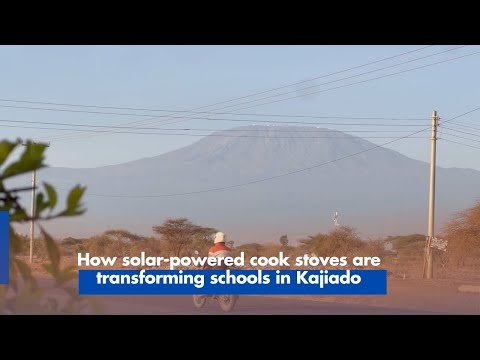Since Kenya gained multiparty democracy after President Daniel Moi repealed Section 2A of the constitution in 1991, opposition leaders have been taking advantage of western states to help shape elections.
The visit to these states has been in Kenya’s historical writings, and such tours concentrate on the UK and the US.
Uniquely and disturbing, Deputy President William Ruto demonstrated the same on March 7 at Chatham House, London, traveling to the UK to bad-mouth elections in Kenya. Raila Odinga did the opposite on March 16, promoting Kenya’s progress.
It is unique because Deputy President Ruto is bad-mouthing an administration he is part of. It is disturbing because it infringes the institution of Kenya’s foreign policy, which he deputizes.
Kenya’s foreign policy is the state’s external behaviour at the international arena. The president and the deputy president, as the presidency, are the lead symbol of the foreign policy institution. Therefore, the deputy president ought “To promote, project, and protect Kenya’s image and interests globally through innovative diplomacy.
Ruto took the message of ‘democracy on trial’ and ‘sidelining constitutionalism’ to the international table, particularly to the west. Such a blame game to the government is the same as what opposition leaders have pointed out, and probably the heated one was Raila Odinga’s visit to the US and the UK in 2017 to accuse the Uhuru administration of interfering with constitutionalism and electoral processes.
Thus, just like Raila did not understand the dynamics of the international arena, the deputy president repeated the same.
Essentially, it should be understood that after the end of the Cold War, the world was moving towards a bipolar system, a situation Francis Fukuyama called ‘the end of history,’ and Samuel Phillips Huntington called the ‘third wave’ — democratizing the world. The period was characterised by ‘liberal hegemony,’ and developing democracies such as Kenya at a time could get sanctions or face critiques from the international community due to Moi’s oppression of the opposition.
Western powers were dancing the democratisation tune with the opposition leaders who traveled there for support. Today, however, the world is shifting towards a multipolar system, a system with powers such as Russia and the economic giant China, which have resisted liberal hegemony and focused on stability at the international arena.
The works of Fukuyama’s ‘End of History’ and Huntington’s Third-wave stalled, and the western powers are today more concerned with balancing China and Russia and not democratisation.
Ruto as the deputy to Kenyatta’s administration, ought to understand the changing dynamics at the international arena.
At Chatham House, he said the Horn of Africa has election and security challenges, and Kenya stands out as a stability provider in the region and an anchor of such stability. Such statements stipulate the national interest of the state.
However, the deputy president infringed the presidency and Kenya’s foreign policy institution. Ruto demonstrated that his United Democratic Alliance, is different from their competitors, who advocated the Building Bridges Initiative that proposed 72 constitutional amendments.
UDA aims to complete the implementation of the Constitution and consolidate democracy, while his rivals aim to amend it and take Kenya back to the older rule. He bad-mouthed President Uhuru Kenyatta’s Azimio side as campaigners of the imperial presidency, creating power to the president over the Judiciary and Parliament.
Furthermore, Ruto blamed Kenya for the lack of institutionalism, pointing to the weak culture of the institutions such as political parties being operated by personalities and failing to respect the Political Parties Act. He demonstrated he has been changing political parties from Kanu to ODM, Jubilee, and now UDA. However, he did not demonstrate that he took advantage of the slow implementation of the Political Parties Act but blamed his opposing side for building political parties anchored in personalities.
Such claims infringe the institution of foreign policy by spreading Kenya's dirty linen, and it points his differences with the President at the international table, casting aspersions on the presidency.
Ruto termed the Kenyan government a ‘mongrel’ system. A mongrel is a dog of no definable breed, thus painting Kenya as a government with no specific type at the international stage. He thus means Kenya is a state of no type and can relate to or betray anyone at the international arena.
Essentially, it should be understood that Ruto deputises the president in projecting Kenya’s national interest. His claims frame the country he is deputizing as a mongrel state.
Interestingly, Raila visited the UK a week after Ruto and delivered a different message from his 2017 message at Chatham House.
Raila promoted Kenya's external behavior, calling for multilateralism. He uplifted Kenya’s leadership at the United Nations Security Council and played a non-alignment posture—condemning the Russia-Ukraine war and mentioning the sanctions imposed on Russia.
He called for peace, diplomacy, and conflict resolution through dialogue. Unlike Ruto’s speech, Raila promoted Kenya's constitutional progress and praised the BBI.
Kenya is in a geo-strategic position in the region for the powers such as the US and China. It plays an essential role as a non-permanent member of the UNSC. Therefore, just as Raila’s March 16 speech promoted Kenya’s role at the UNSC and the progress of the 2010 Constitution, Ruto ought to have projected the country’s national interest by drawing the attention of the peers in the US and the UK and not downcasting domestic institutions, which should be exemplary due to its position at the UNSC.
And while Raila praised Kenya’s internal security system, Ruto exposed it in his earlier speech. He demonstrated the 17th century Pied Piper of Hamelin, pointing out that ‘he who pays the piper calls the tune.’
He exposed the state's internal security, claiming the police institution, which is supposed to be independent and part of the National Security Council, is influenced by the President who pays them. Such a claim further infringes the foreign policy institution because the police is part of the national security council, and that Ruto deputizes.
As a UNSC non-permanent member, Kenya should demonstrate good security strategies at the international arena. Therefore, the fact remains, if the president pays the piper (Inspector general and the director of DCI), then Ruto deputises the call of the tune.
Kenya’s foreign policy document of 2014 has five pillars; peace and stability, economic prosperity, promotion of our cultural heritage, the diaspora, and environmental protection.
One would expect the deputy president to promote such policy projection and not bad-mouth the Uhuru administration, which he is part of. Furthermore, the document promotes and strengthens bilateral relations, supporting strategic partnership and fostering regional integration both at the continental and multilateral table.
Therefore, unkind remarks about Kenya at the international level are uncalled for, particularly from the individual who deputizes and holds the symbol of Kenya’s foreign policy.
The author is a research fellow at the Department of Political Science and Public Administration, UoN. He is also an assistant research fellow at the Norwegian University of Life Sciences.
WATCH: The latest news from around the World











